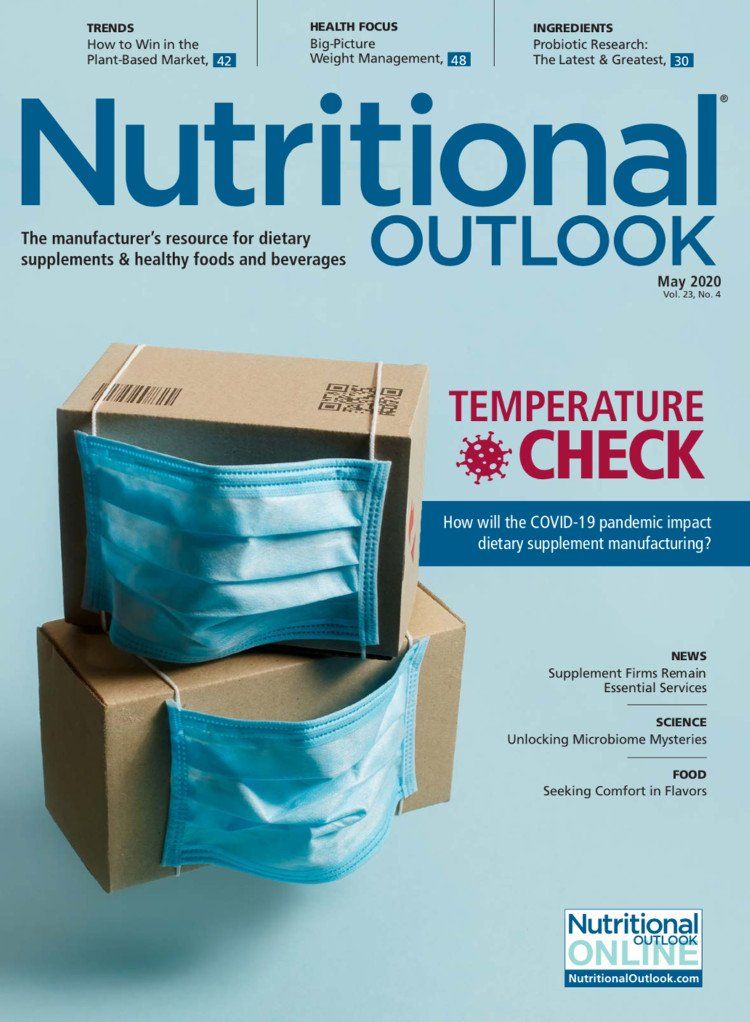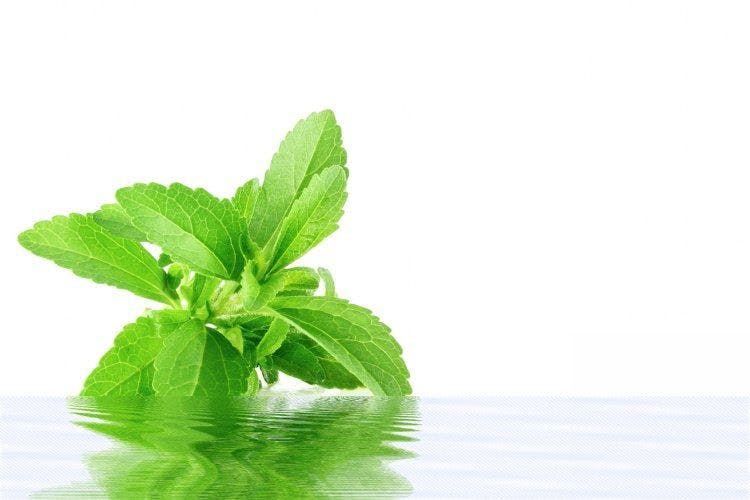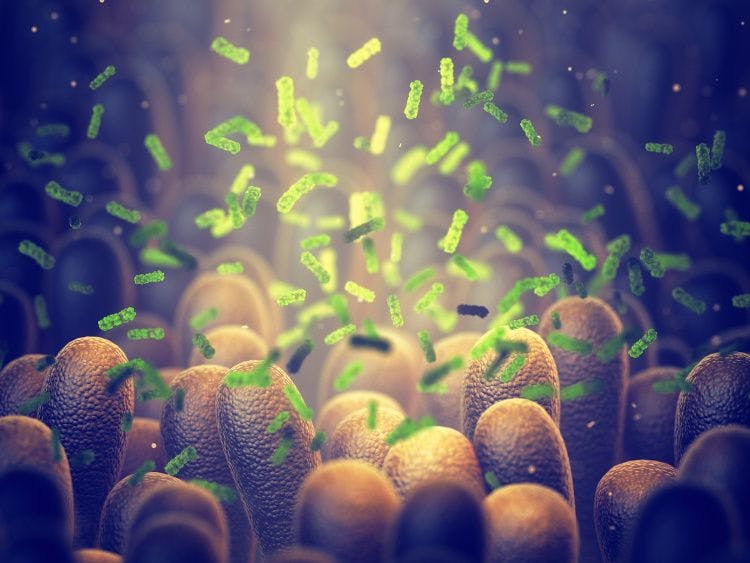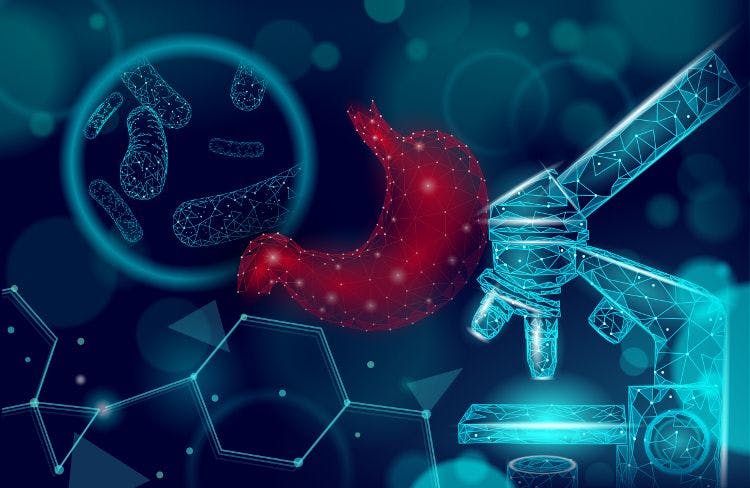Men’s healthy aging: Herbal superstars
Men are increasingly looking for proven products that promote healthy aging. Here are some of the ingredients that recent research has validated.
Photo credit © Асель Иржанова - Stock.adobe.com

Americans aren’t getting any younger. According to Census Bureau data from 2019, the median age has increased from 37.2 years in 2010 to 38.2 years in 2018. Meanwhile, the percentage of the American population who is 65 years old or older reached 16% in 2018, which is a 30% increase since 2010.1
As men age, there will be an increased demand for products and ingredients that support healthy aging. A 2019 report by market researcher Technavio predicts that the global antiaging ingredients market will experience a 5% CAGR through to 2023.2 A growing interest in antiaging products for men will create opportunities for new ingredients that can address issues like prostate problems, sexual dysfunction, and muscle loss. Here are some of the recent developments in men’s healthy aging ingredients that are creating opportunities for new and established brands.
Maca Reduces Fatigue, Sexual Dysfunction
Previous studies have affirmed maca root’s (Lepidium meyenii) positive effects on sperm count in both humans3 and animals4. New clinical trials are assessing its efficacy as a strength enhancer, vitality booster, and sexual performance aid. One study, a randomized, double-blind, placebo-controlled clinical trial, assessed the effects of a patented Peruvian maca ingredient-Lepidamax from Nutrition 21 (Purchase, NY)-on these three dimensions in 47 healthy subjects (22 males and 25 females) between the ages of 18 and 53. Participants were randomly assigned to receive either three 700-mg doses of Lepidamax-brand maca root per day (n=25) or a matching placebo (n=22) for the duration of the trial. All participants were assessed for body composition and handgrip strength at intake and on day 28. All participants completed the Profile of Mood States questionnaire and the Derogatis Interview for Sexual Functioning both at intake and on day 28.
The male participants in the treatment group saw statistically significant increases in handgrip strength and sexual behavior, as well as a statistically significant decrease in fatigue, relative to the placebo group. The study authors concluded that maca root may reduce fatigue, boost strength, and improve sexual function in healthy men.5
Aimee Masterson, marketing director for Nutrition 21, says that the men’s healthy-aging market is being driven by consumers’ desire to maintain their health into old age. As life expectancy rises, Masterson says, more aging men will seek out products to help them live well.
“Consumers aren’t just looking to manage aches and pains,” Masterson says, “but to live their most optimal life at any age. That’s why we’re seeing sports nutrition and vitality products targeting the ‘aging male’ profile.”
Fenugreek Extract Maintains Strength and Fitness in Aging Men
Fenugreek extract (Trigonella foenum-graecum) continues to show positive results in clinical trials assessing its efficacy as a fitness supplement. Aging men, according to Gencor (Irvine, CA) Marketing Director Maggie McNamara, make up a large and growing segment of the active-living supplements market, and among their primary health concerns are their mobility and capacity to live independently. These consumers are seeking supplements that aid in their ability to stay fit.
“Difficulty moving around is one of the top concerns of aging Americans,” McNamara says. “The elderly face challenges and opportunities that previous generations didn’t encounter. Twenty percent of men over the age of 60 have testosterone levels below the normal range, and that figure rises to 50% for men over 80. This is due to sex hormone–binding globulin (SHBG) binding to testosterone and decreasing levels of total and free testosterone over time.”
McNamara notes that low testosterone levels can result in loss of muscle mass, loss of bone density, and loss of libido. Age-related testosterone loss also causes decreased metabolism and an increase in inflammation, she says, which is why testosterone-boosting supplements are gaining popularity among older adults.
One 2016 randomized clinical trial6 assessed the efficacy of Gencor’s branded Fenugreek extract Testofen on reducing symptoms of andropause in 98 healthy, physically active men between the ages of 43 and 70. Participants were randomly assigned to receive either 300 mg (n=35) or 600 mg (n=31) of Testofen, or a matching placebo (n=32), per day for 12 weeks. Participants were assessed on muscle strength, aerobic endurance, body composition, body mass, total testosterone, and Functional Threshold Power at baseline and after 12 weeks.
Relative to the placebo group, the 600-mg group showed statistically significant increases in lower body strength, Functional Threshold Power, and total testosterone levels. The 600-mg group also showed decreases in body mass and increases in percentage lean mass relative to both the placebo and 300-mg groups.
McNamara says that aging men are becoming more open to the idea of taking supplements to assist with healthy aging. Sexual health supplements, in particular, are becoming more popular among older adults.
“Supplements to improve male sexual health now abound. The widespread misconception that elderly adults no longer have sex has long been discredited. While sexual activity generally declines with age, a study published back in 20087 found that more than half of those aged 65 to 74 continued to be sexually active.”
New Study Reveals Tongkat Ali’s Mechanisms of Action
Research on tongkat ali (Eurycoma longifolia) as a sexual enhancer has, in the past, focused on its ability to boost testosterone and sperm count. Now, though, new studies are showing that it also interacts with enzymes to promote proper erectile function.
A 2019 in vitro chromatography study revealed an important mechanism of action behind LJ100, a branded tongkat ali supplement produced by HP Ingredients (Bradenton, FL). Using an aqueous tongkat ali extract standardized at 10 micrograms per milliliter, the researchers determined that the extract successfully inhibited Rho-kinase II (ROCK-II) activity by up to 81%. In contrast, a vehicle control substance produced only a 2% inhibition of ROCK-II. The study authors concluded that “The traditional use of E. longifolia as aphrodisiac and for male sexual disorders might be in part due to the ROCK-II inhibitory potential.”8
Annie Eng, CEO of HP Ingredients, says that other studies on LJ100 have found other mechanisms of action that account for its other effects. Eng says that HP Ingredients’ 15 clinical trials on LJ100 have revealed that tongkat ali also heightens sexual fulfillment by boosting dopamine and improves vasodilation by inhibiting phosphodiesterase-5 (PDE-5), arginase, and angiotensin I–converting enzyme (ACE).
“Our human clinical studies also support the claims that LJ100 reduces reactive oxygen species, thereby increasing the nitric oxide–cGMP signaling pathway to produce harder erections, and also increases an alpha pheromone to improve libido, sexual communication, and sexual behavior.”
Eng says that the men’s healthy-aging industry has been aggressively advertising testosterone replacements. She notes that LJ100 positions itself differently, instead promoting the idea of waking up the dormant testosterone production system and endogenously unbinding free testosterone.
New Study Demonstrates Relationship between Diabetes and ED
The connection between blood health and men’s sexual health is becoming more evident as a result of new clinical studies. One 2019 randomized, double-blind, placebo-controlled trial9 examined the effect of a branded French maritime bark polyphenol extract, Pycnogenol, on the lipid profile and erectile function of 53 men with a mean age of 49 who exhibit normal testosterone levels and who meet the IIEF-5 diagnostic criteria for erectile dysfunction.
Participants were randomly assigned to receive either 120 mg of Pycnogenol per day (n=32) or a matching placebo (n=21) for three months. The Pycnogenol group was divided into subgroups of participants with comorbid diabetes mellitus (n=15) and participants without comorbid diabetes mellitus (n=17). The placebo group was also divided into subgroups of participants with (n=10) or without (n=11) diabetes.
All participants were assessed via the IIEF-5 Questionnaire at baseline, once per month during the trial, and one month after their final dose. Participants also provided blood samples at baseline, one month into the trial, upon conclusion of the trial, and one month after the conclusion of the trial. Participants’ blood serum samples were tested for cholesterol, high sensitive C-reactive protein, glucose, and triacylglycerols.
After three months, Pycnogenol administration caused a statistically significant improvement in erectile function in both treatment groups. Participants with diabetes saw a 45% improvement in IIEF-5 scores, representing an improvement from severe to moderate erectile dysfunction. Participants without diabetes saw a 22% improvement in scores but remained within the moderate severity category. There was no statistically significant change in the placebo group’s IIEF-5 scores.
Carolina Burki, director of product development at Horphag Research (Chicago), maker of Pycnogenol, says that Pycnogenol boosts nitric oxide production and thereby supports blood health, which explains its effect on erectile function. Burki says that erectile dysfunction can be an indicator of an underlying health problem such as heart disease or diabetes, which is why studying the efficacy of erectile health supplements in populations with these diseases matters.
“Numerous studies have shown that Pycnogenol’s ability to promote nitric oxide production can improve erectile function, and separate studies have found that Pycnogenol improves microcirculation and blood glucose levels in diabetes patients,” Burki says. “But this new research is particularly interesting because those with diabetes often have a higher incidence of erectile dysfunction.”
Men’s Health Ingredients Ready for Primetime
Aging men are looking for ways to recapture the strength, vitality, and sexual performance of their youth while also addressing issues like blood pressure and prostate health. Men are also increasingly becoming more welcoming of and interested in antiaging products, particularly natural ingredients, as consumers seek out alternatives to pharmaceuticals.
As the population continues to age, more opportunities will open up for brands that can demonstrate proven benefits through clinical trials.
Sidebar 1
New Pilot Study Demonstrates Efficacy of Pumpkin Seed
A 2019 open trial on 60 men with benign prostatic hyperplasia found that a daily 500-mg dose of Go-Less Men, a branded pumpkin seed extract produced by Frutarom (Haifa, Israel), lowered IPSS scores by 30% after 12 weeks and significantly reduced BPH symptoms.10 Tom Li, business development manager for Frutarom parent company IFF Health (New York City), says that demand for these types of natural remedies is growing.
“Consumers are looking to shift away from OTC products,” he says. “They’re looking for healthy-aging ingredients that improve quality of life, and the price fluctuations and adulteration problems with saw palmetto are opening up opportunities for new alternatives.”
Sidebar 2
Lycopene Boosts Reproductive Health In Young Men
While most sexual health supplements target older men, studies are showing that younger men also benefit from such products. A March 2020 randomized, placebo-controlled trial on 56 men aged 18 to 30 found that 14 mg/day of lycopene (n=28) improved sperm motility and morphology after 12 weeks relative to placebo (n=28).11 The study used a proprietary lycopene extract, Sibelius: LactoMato, from Sibelius Natural Products (Oxford, UK).
Loukiana Chatzinasiou, senior product manager for Sibelius Natural Products, says that “the rising awareness of men’s health issues are expected to drive a demand for novel and effective supplements targeted at men’s health.”
Sidebar 3
Tomato Nutrient Complex Supports Healthy Blood Pressure
Maintaining healthy blood pressure levels is a high priority for men over 50. New research indicates that lycopene and carotenoids can support healthy blood pressure. Golan Raz, head of global health for Lycored (Secaucus, NJ), says that in a 2019 clinical trial, 15 mg (n=26) or 30 mg (n=26) of Lycored’s branded tomato nutrient complex Lycomato was found to help reduce blood pressure in hypertensive men relative to placebo (n=26) after four weeks.12
References:
- U.S. Census Bureau website. “Population estimates show aging across race groups differs.” Published online June 20, 2019.
- Technavio. “Global anti-aging ingredients market 2019-2023: Demand for organic anti-aging products to boost growth.” Published online April 1, 2019.
- Gonzales GF et al. “Lepidium meyenii (maca) improved semen parameters in adult men.” Asian Journal of Andrology, vol. 3, no. 4 (December 2001): 301-303
- Clément C et al. “Effect of maca supplementation on bovine sperm quantity and quality followed over two spermatogenic cycles.” Theriogenology, vol. 74, no. 2 (July 2010): 173-183
- Jiannine LM et al. “The effects of Lepidium meyenii on grip strength, fatigue, and sexual behavior.” Journal of Exercise and Nutrition, vol. 2, no. 1 (2019): 6
- Rao A et al. “Testofen, a specialised Trigonella foenum-graecum seed extract reduces age-related symptoms of androgen decrease, increases testosterone levels and improves sexual function in healthy aging males in a double-blind randomised clinical study.” The Aging Male, vol. 19, no. 2 (June 2016): 134-142
- Lindau ST et al. “A study of sexuality and health among older adults in the United States.” The New England Journal of Medicine, vol. 357, no. 8 (August 23, 2007): 762-774
- Ezzat SH et al. “Rho-kinase II inhibitory potential of Eurycoma longifolia new isolate for the management of erectile dysfunction.” Evidence-Based Complementary and Alternative Medicine. Published online May 15, 2019.
- Trebaticky B et al. “Natural polyphenols improve erectile function and lipid profile in patients suffering from erectile dysfunction.” Bratislava Medical Journal, vol. 120, no. 12 (December 2019): 941-944
- Leibbrand M et al. “Effects of an oil-free hydroethanolic pumpkin seed extract on symptom frequency and severity in men with benign prostatic hyperplasia: A pilot study in humans.” Journal of Medicinal Food, vol. 22, no. 6 (June 2019): 551-559
- Williams EA et al. “A randomized placebo-controlled trial to investigate the effect of lactolycopene on semen quality in healthy males.” European Journal of Nutrition, vol. 59, no. 2 (March 2020): 825-833
- Wolak T et al. “Effect of tomato nutrient complex on blood pressure: A double blind, randomized dose-response study.” Nutrients, vol. 11, no. 5 (April 26, 2019)























